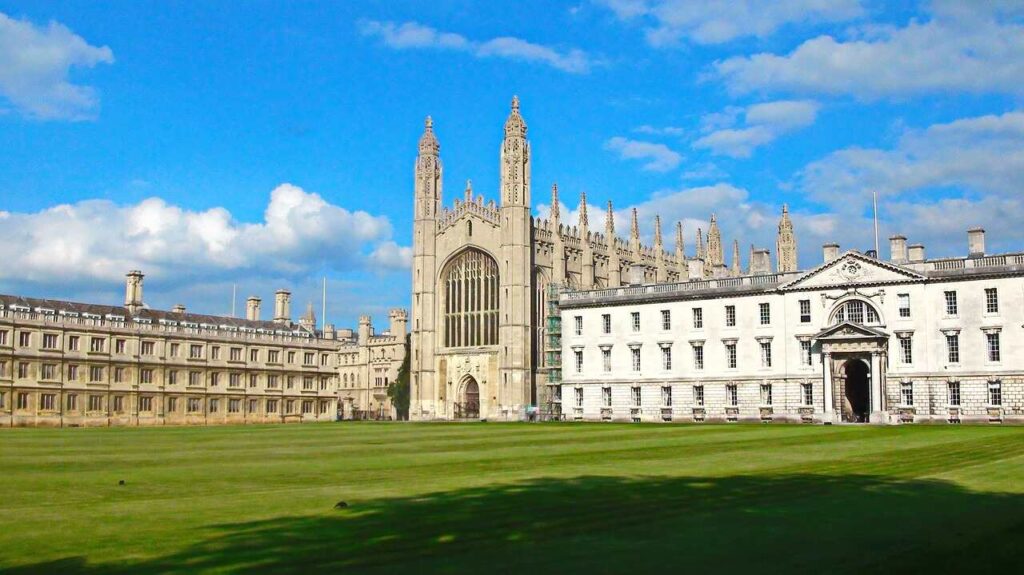As a seasoned IB writer and enthusiast, I’ve often been asked, “Does Cambridge accept IB students?” The answer is a resounding yes, and understanding the IB requirements for such prestigious institutions is crucial. With my extensive experience in the International Baccalaureate (IB) world, I would like to highlight this topic, focusing on Cambridge University’s expectations.
Cambridge University IB Requirements: A Hub of Academic Excellence
Firstly, let’s talk about the University of Cambridge. From my experience, it’s a place where academic dreams take flight. Cambridge isn’t just about historic buildings; it’s about nurturing brilliant minds.
Now, let’s talk about the average IB score at Cambridge. In my opinion, the numbers here paint a picture of excellence. Cambridge typically looks for top-tier IB scores, reflecting its commitment to high academic standards. For instance, successful applicants often boast scores well above the global IB average.
However, it’s crucial to remember that Cambridge values more than just numbers. Here are some key points to consider about Cambridge and its approach to the IB:
- From my interactions with admissions officers, I understand Cambridge assesses candidates holistically. It’s not just your IB score; your statement, teacher recommendations, and extracurricular activities play a significant role.
- Depending on your chosen course, Cambridge may have specific subject requirements. For instance, higher-level subjects in areas relevant to your course are often expected.
- Cambridge holds the IB’s core components in high esteem. A strong performance in your Extended Essay and Theory of Knowledge can significantly enhance your application.
- As an IB student, you’ll be well-prepared for the intellectual rigor of Cambridge interviews and assessments. These are opportunities to showcase your critical thinking and problem-solving skills.
- Cambridge deeply values the diverse perspectives that IB students bring. The international outlook and research skills honed through the IB program are highly regarded.
- For IB students, Cambridge offers a wealth of resources and support systems to help them transition from the IB curriculum to university-level studies.
In my opinion, aspiring for Cambridge as an IB student is not just about aiming for high scores. It’s about embracing the learning ethos of the IB — inquiry, reflection, and open-mindedness. Cambridge recognizes and values this approach, making it a fitting destination for IB graduates.
Going Through Cambridge’s Admission Process
Transitioning to Cambridge’s admission process, you’ll find it’s quite comprehensive. Cambridge looks for students who meet the minimum IB score and exhibit intellectual curiosity and potential. In my opinion, understanding this process is critical to a successful application.
Remember that the application process to Cambridge is multifaceted. It includes choosing a course and a college, completing the UCAS, and additional forms like the COPA and SAQ. Preparing for interviews is also an essential part of the process.
IB Requirements for Cambridge Admission
At Cambridge, the typical offer for IB students requires an overall score of 42-43, including the Theory of Knowledge and Extended Essay components. Additionally, students are expected to achieve scores of 7, 7, 6 in the relevant Higher Level subjects or 7,7,7 in specific subjects like Maths and Science, Psychological and Behavioural Sciences, and Economics.
IB students are also expected to take the Higher Level “Analysis and Approaches” option for courses requiring Mathematics. The university’s holistic approach considers various aspects of a student’s profile beyond just the IB scores.
The university does not have absolute standards for A-level achievement for specific courses like Engineering but notes that the average entrant typically has three A grades. Although these requirements are expressed in A-level terms, equivalent qualifications in other national and international examinations, including the IB, are acceptable. Maths and Physics at A-Level (or equivalent) are absolute requirements for Engineering.
In my experience, Cambridge values the diversity of thought and perspective that IB students bring. The university’s admission process reflects a keen interest in well-rounded students demonstrating strengths in various areas, including extracurricular activities, personal statements, and recommendations. It aligns with the IB’s emphasis on developing critical thinking, research skills, and an international outlook.
From my experience, the key to going through Cambridge’s admission process as an IB student lies in showcasing your academic prowess, intellectual curiosity, and growth potential. It’s about presenting a compelling narrative that resonates with Cambridge’s values and standards.
I recommend visiting the University of Cambridge’s site for a detailed understanding of the admission requirements and process.
Strategies to Attain the Needed IB Score for Cambridge
So, how do you achieve these scores? From my experience, it’s about balancing your study habits and extracurricular activities. It’s not just cramming; it’s about understanding and applying your knowledge. Remember, Cambridge values the quality of learning over rote memorization.
1. Developing a Solid Understanding of Core Concepts
From my experience, the key to excelling in the IB is a deep understanding of core concepts rather than rote learning. Engaging with the material on a level where you can apply your knowledge in various contexts is essential. It means going beyond just memorizing facts or formulas; it involves understanding the “why” and “how” behind them.
2. Effective Time Management and Study Schedules
Effective time management is critical. I’ve observed that successful IB students create and adhere to a well-structured study schedule. It doesn’t mean cramming your day with endless study hours. Instead, it’s about quality over quantity. Allocate specific times for each subject and stick to this routine. Regular, focused study sessions are far more productive than irregular, lengthy ones.
3. Balancing Academic Work with Extracurricular Activities
Balancing academics with extracurricular activities is another crucial aspect. Cambridge values well-rounded students. Participating in sports, arts, or volunteer work can enhance your university application and provide a much-needed break from academics, fostering a more balanced lifestyle.
4. Using IB Resources and Seeking Help When Needed
Make the most of available IB resources. It includes textbooks, online resources, and your teachers. Feel free to ask for help when struggling with a topic. Group study sessions can also be beneficial, as they offer different perspectives and can aid in deeper understanding.
5. Practicing Past Papers and Understanding Exam Techniques
Practicing past exam papers is a strategy I cannot emphasize enough. It familiarizes you with the exam format and types of questions asked. Additionally, understanding and mastering exam techniques, such as time management during tests and how to approach different question types, is crucial.
6. Prioritizing Mental and Physical Health
Lastly, taking care of your mental and physical health is paramount. Regular exercise, a healthy diet, and sufficient sleep significantly improve overall performance. Remember, a healthy body fosters a healthy mind.
7. Reflection and Self-Assessment
Regular reflection on your learning process is vital. Assess your strengths and areas for improvement. Be open to adapting your study methods if specific strategies aren’t working.
Don’t let the stress of the IB curriculum hold you back.
Are you struggling to come up with topic suggestions for your IB Internal Assessment? Or do you need help with External Assessment?
Our experienced writers can help you choose the perfect topic and assist you with any assignment.
Tailored to your specific subject and requirements.
Our experienced IB writers are always ready to help.
Simply click:

Topics to Read:
- Guide to the Official IBO Website for IB Student Advantages and Growth
- How to Manage Time Effectively as an IB Student
- The Benefits of Pursuing the IB Diploma Programme
- What to Do if You Don’t Pass Your IB IA? How to Succeed Next Time?
- Can I Order IB Internal Assessment Written Online?
- What Are the Average IB Acceptance Rates? Insights from an IB Expert
- What Are the IB Internal Assessment Deadlines for 2024?
- What Are the Average IB Scores for US Universities?
- Does an IB Diploma Help with College Admissions?
- What Are the Average IB Scores for UK Universities?
How to Make Your Cambridge Application Stand Out?
Creating a winning application for Cambridge University involves several key steps and considerations.
1. Understand Specific Subject Requirements
Different courses at Cambridge have specific subject requirements. For example, Medicine requires A levels in Chemistry and at least one in Biology, Physics, or Mathematics. Cambridge also prefers certain A-level subjects and combinations and values subjects like Mathematics for many courses. Research the specific requirements of your chosen course carefully.
2. Polish Your Academic Record
Cambridge places a high emphasis on grades. The university expects applicants to meet, and preferably exceed, their academic entry requirements. It includes not only A-level results but also your overall academic track record. Achievement in relevant competitions can also strengthen your application.
3. Choose the Right College
Your choice of college at Cambridge is significant. While officially, it does not affect your chance of admission, in practice, some colleges are known for specific subjects and may receive different numbers of applications for each place. Consider the college’s reputation for your subject, the number of places available for your course, and the college’s facilities and location.
4. Career and Future Planning
Demonstrate in your application how the degree from Cambridge will contribute to your future career or academic goals. Cambridge is interested in candidates with a clear sense of direction and ambition.
5. Personal Statement and School Reference
Your personal statement is an opportunity to show your engagement with the chosen subject. However, the school reference often carries more weight in the application process. It should convincingly speak to your academic strengths. In your statement, highlight your curiosity about the subject, independent study, and unique insights or experiences.
Conclusion
I’ve spoken with many Cambridge students who were once in your shoes, meeting the IB requirements and anxieties. Their advice? Be yourself and stay true to your aspirations. The path might be daunting, but remember, you’re aiming for one of the world’s premier universities.
To wrap up, Cambridge does accept IB students, and meeting the IB requirements is a significant part of the application process. Remember, it’s not just about the scores; it’s about who you are as a learner and a thinker. Keep pushing, stay curious, and who knows? Maybe I’ll see you walking through the hallowed halls of Cambridge!
Also, if you need help with the IB curriculum, our experts at IB Writing Service are always ready to help you.




